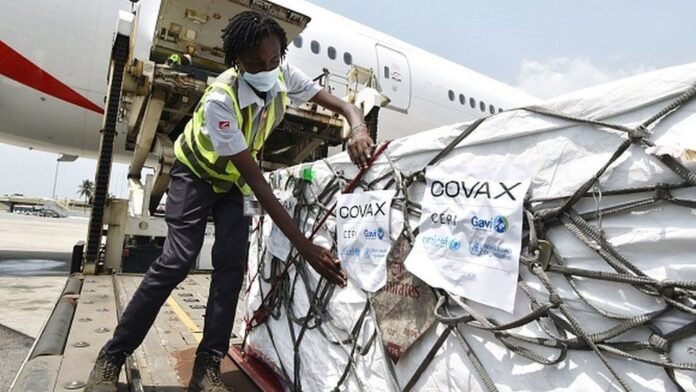
A large number of poorer countries receiving Covid-19 vaccines through a global sharing scheme do not have enough doses to continue programmes, the World Health Organization has said.
WHO senior adviser Dr Bruce Aylward said the Covax programme had delivered 90 million doses to 131 countries.
But he said this was nowhere near enough to protect populations from a virus still spreading worldwide.
The shortages come as some nations in Africa see the third wave of infections.
On Monday, South African President Cyril Ramaphosa called for an end to vaccine hoarding by wealthier countries as his government scrambled to curb a steep rise in cases.
On a continental level, only 40 million doses have been administered so far in Africa – less than 2% of the population, Mr Ramaphosa said.
To address this, he said his government was working with Covax to create a regional hub to produce more vaccines in South Africa.
Covax was created last year to ensure Covid-19 doses were made available around the world, with richer countries subsidising costs for poorer nations.
As vaccine supplies come under strain, some wealthier countries with spare doses are leading efforts to step up donations through Covax and other means.
On Monday the administration of US President Joe Biden announced how it planned to donate 55 million vaccine doses to countries in need.
Of those, 41 million would be distributed through Covax, with the remaining 14 million shared with countries deemed to be priorities.
These vaccines are not included in the 500 million doses President Biden said the US would donate via Covax. President Biden made that pledge earlier this month at a summit of major economic powers, known as the G7 (Group of Seven).
Together, those G7 members committed to donate one billion vaccines to poorer countries over this year.
But campaigners criticised the pledge, saying it lacked ambition, was far too slow and showed Western leaders were not serious about tackling the worst public health crisis in a century.
Some health experts believe it could be months – if not years – before enough people are vaccinated globally to declare an end to the pandemic.
When asked about the global need for vaccines on Monday, White House Press Secretary Jen Psaki said: “What we have found to be the biggest challenge is not actually the supply, we have plenty of doses to share with the world, but this is a Herculean logistical challenge.”
Source: BBC

